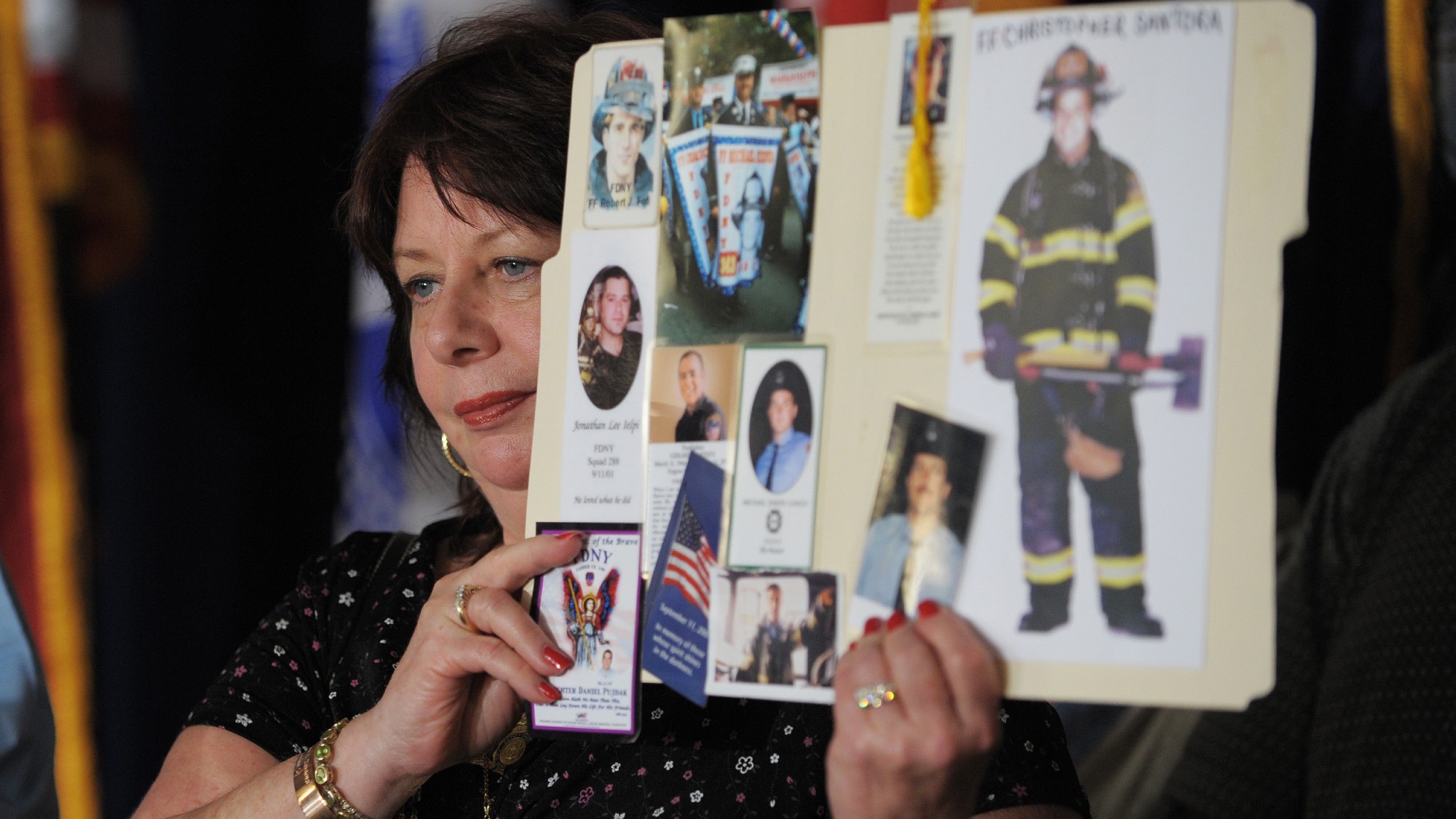Why the 9/11 terror cases still linger after two decades
A plea deal reversal follows missed opportunities and complications over torture


A free daily email with the biggest news stories of the day – and the best features from TheWeek.com
You are now subscribed
Your newsletter sign-up was successful
For a day or two, it appeared that the long saga of America's post-9/11 trials might be over. That moment has passed.
Defense Secretary Lloyd Austin last week nixed a plea deal involving terror plotter Khalid Sheikh Mohammed — known as "KSM" — and two of his co-defendants, said The Washington Post. That came after an "immediate and severe backlash" to an agreement that critics said would let the accused terrorists escape the death penalty. Austin overruled and removed the military judge who oversaw the deal. "Responsibility for such a decision should rest with me," he said. But that means justice — already delayed — will wait a bit longer.
The court cases against the alleged 9/11 plotters have been "fraught with delays and complications," Ellen Ioanes said at Vox. One reason: torture. The case against KSM is complicated by the fact he was waterboarded 183 times by American interrogators. Judges in the case have had to hear whether confessions submitted under duress will be allowed. "Every time the military commissions have to address a factual or legal issue," J. Wells Dixon, a senior staff attorney at the Center for Constitutional Rights, said to Vox, "the United States government prioritizes covering up the torture and abuse of the detainees over getting to the truth."
The Week
Escape your echo chamber. Get the facts behind the news, plus analysis from multiple perspectives.

Sign up for The Week's Free Newsletters
From our morning news briefing to a weekly Good News Newsletter, get the best of The Week delivered directly to your inbox.
From our morning news briefing to a weekly Good News Newsletter, get the best of The Week delivered directly to your inbox.
The raw trauma of 9/11
"The 9/11 terrorists should have been brought to justice long ago," National Review said in an editorial. The delays didn't have to happen: In 2008, KSM and his co-defendants attempted to plead guilty before the military tribunal set up after the terrorist attacks. Instead, then-President Barack Obama tried to shut down the tribunal and move the case to a federal civilian court — only to be blocked by Congress. The defendants "lawyered up" when the case went back to the tribunal. "Thus, Obama forfeited America's best chance at executing the 9/11 plotters," said the Review.
"The 9/11 plotters should have been found guilty in a real court," Matthew Petti said at Reason. Instead, President George W. Bush created the tribunals and sent suspects to CIA black sites "rather than letting law enforcement handle a massacre on American soil." Those decisions were understandable while "the trauma of 9/11 was still so raw," said Petti. But after more than two decades, the choices may have also "prevented this wound from ever healing."
'The finality we all deserve'
Some Republicans have praised Austin's decision to reverse the plea deal, said Politico. "The Biden-Harris administration is correct to reverse course," said House Speaker Mike Johnson, urging the White House to "deliver long-awaited justice for 9/11 families." His decision was also praised by some of those families, including the national group 9/11 Families United. But another group, September 11th Families for Peaceful Tomorrows, said the plea deal reversal deprived them of "the finality and accountability we all deserve."
"Before his plea bargain was scuttled, Khalid Sheikh Mohammed was set to break his silence," Andrew Rice said at New York magazine. The plea deal would have taken the death penalty off the table "in return for KSM's full cooperation in a sort of fact-finding proceeding." He could have answered still-lingering questions about the 9/11 plot. "In essence, the terms of the trade were: life for facts," said Rice. Now it's an open question whether we'll ever get to hear those facts. "He is one of the greatest mass murderers in history, and we really don't know why he did it," said journalist Terry McDermott to New York. We may be waiting a while longer to find out.
A free daily email with the biggest news stories of the day – and the best features from TheWeek.com
Joel Mathis is a writer with 30 years of newspaper and online journalism experience. His work also regularly appears in National Geographic and The Kansas City Star. His awards include best online commentary at the Online News Association and (twice) at the City and Regional Magazine Association.
